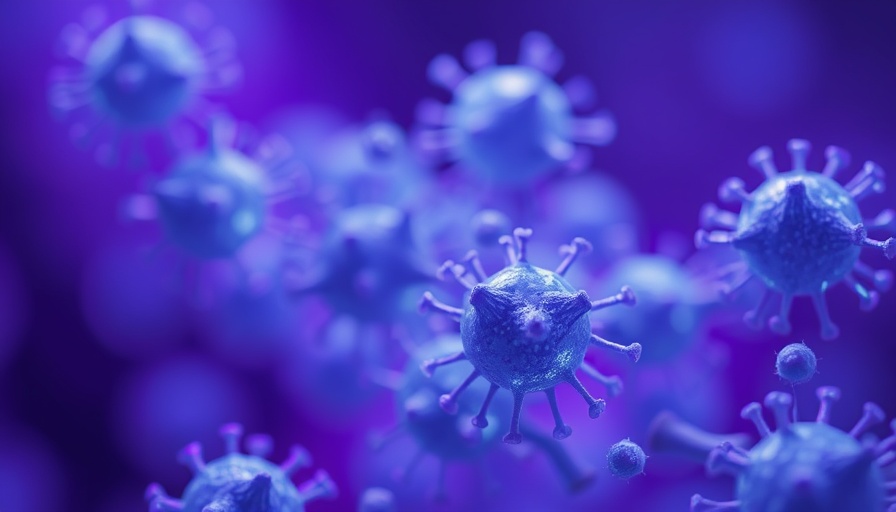
The Dangerous Connection Between Diet and Cancer Spread
Understanding how our diet impacts our health has never been more crucial, especially when it comes to serious conditions like cancer. Recent research has highlighted the role of saturated fats, particularly palmitic acid found in meat and dairy products, in potentially fueling the metastasis of cancer cells. Targeting the fat receptor CD36, scientists have discovered that this fatty acid can enhance the ability of cancer cells to spread throughout the body, a tragic outcome that accounts for nearly 90% of cancer deaths.
What Is Metastasis and Why Does It Matter?
Metastasis is the process by which cancer spreads from its original site to other parts of the body. This process challenges traditional treatments, as many common therapies might inadvertently encourage cancer progression rather than inhibit it. For example, treatments like chemotherapy can shrink tumors but, as research shows, may also alter the environment around tumors, allowing cancer cells to escape into the bloodstream.
Insights from Recent Breakthroughs: The Role of CD36
The discovery of CD36 as a key player in cancer metastasis marks a significant advancement in our understanding of how diet may elevate cancer risks. This fat receptor has been consistently linked to the proliferation and migration of various cancer types, including breast and ovarian cancers. By inhibiting CD36, there’s potential to not only slow down tumor growth but also prevent further spread to other areas, offering a promising avenue for future treatments.
Taking Charge: Dietary Choices for Cancer Prevention
Given this information, it becomes increasingly important to make mindful dietary choices. Reducing saturated fat intake and incorporating more plant-based foods can be beneficial in lowering the risks associated with cancer metastasis. Focusing on a balanced diet filled with fruits, vegetables, whole grains, and lean proteins can contribute to overall health and potentially impact gene expressions related to cancer development.
Creating Awareness: The Importance of Education
As we learn more about the links between diet and cancer, it is vital to share this knowledge with others. Educational efforts can empower individuals to make informed choices about their diets, possibly reducing the risk of cancer progression in the future. Awareness campaigns and community programs can play a key role in educating about these important health matters.
While this research presents chilling facts about how diet can affect cancer spread, it also provides hope through actionable insights. Knowledge is power, and by understanding how dietary choices may influence health, we can make strides toward better health outcomes.
 Add Row
Add Row  Add
Add 




Write A Comment